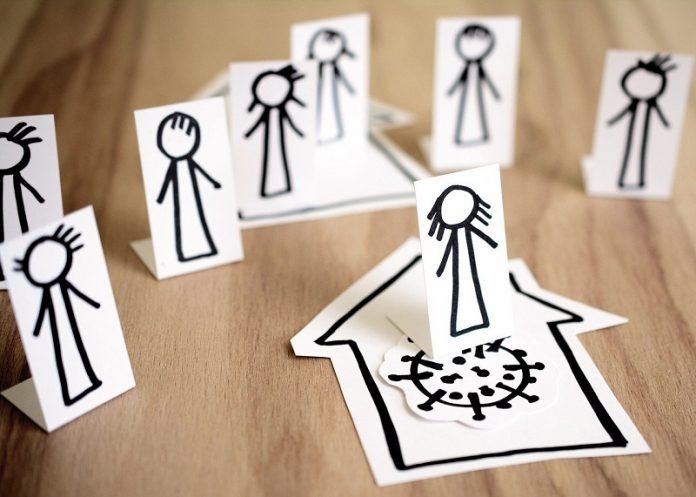
As the country waits for a vaccine to stop the spread of COVID-19, limiting the number of serious illnesses and deaths from this disease is vital.
And most experts agree that mask-wearing and social distancing will be with us for months to come, as the vaccine becomes more widely disseminated.
“For those who are caring for someone with cancer or other conditions, protecting your loved one from COVID-19 is critical,” says Lawrence An, M.D., associate professor of general medicine at Michigan Medicine and co-director of the Rogel Cancer Center’s Center for Health Communications Research.
Older adults, people with compromised immune systems and those with common health conditions – including cancer, pregnancy, asthma, heart disease, kidney disease and obesity – are at increased risk of becoming severely ill from COVID-19 (the Centers for Disease Control and Prevention lists conditions with a known increased risk for severe COVID.)
About 40% of the population is considered at increased risk of severe illness from COVID-19. That’s almost one in every two people you know.
And people with chronic health issues are up to 12 times more likely to die from COVID-19.
An recommends thinking of yourself as a protector: Take responsibility on behalf of an “at risk” loved one by helping to limit their exposure.
Wear a mask, social distance, get a vaccine – all for the sake of keeping them safe. Go to the store or pharmacy to help that at-risk person avoid unnecessary trips out.
“Protecting others is a sign of strength.
Even if you’re not worried about your own safety, wearing a mask and social distancing could help protect a loved one who’s at risk,” says Kenneth Resnicow, Ph.D., professor of health behavior and health education at the U-M School of Public Health and associate director of community outreach and engagement at the Rogel Cancer Center.
“We hope that even for those who may, based on their own perceived risk, not choose to get the vaccine, wear a mask or social distance, this message will resonate by allowing them to be motivated by helping someone else,” he says.
“Rather than feeling they are giving in to an external command, which normally they might resist, they can feel they are autonomously choosing to protect others in their family and community.
We hope this may motivate the 40% of Americans who express some degree of hesitance or ambivalence toward a COVID vaccine.”
Russel Barrette looks after his 89-year-old father, Russell, who is in treatment for bladder cancer. Because the cancer treatments weaken his father’s immune system, Barrette has been very careful to wear masks and limit trips out.
He does all the grocery shopping and takes his dad to and from the Rogel Cancer Center for treatment.
“Keeping Dad healthy, really, that’s my motivation,” Barrette says. “Just keeping him healthy and doing our part for the community.”
It’s not always easy. Barrette says he’s lost contact with a lot of people because he’s not seeing them face-to-face, leaving him feeling lonely and isolated. His father started woodworking, and Barrette built a workshop in the garage – with a heater so they can go out in the winter.
He’s been helping with painting the designs, and the pair hope to be able to display their work at craft shows over the summer.
“Many people are doing the right thing day-in and day-out in a quiet struggle to keep their loved ones safe. These people feel isolated, tired and lonely – and the need to quarantine only amplifies that feeling,” An says.
“The truth is, these people should be celebrated for doing their part to stop coronavirus, much in the same way we elevated health care workers and other essential workers in the first surge of the pandemic.”
Vaccines are on the horizon, but it will likely be a while before the general public is fully vaccinated and life can go back to something more normal. And getting the vaccine will be important once it’s available.
“If it’s just for themselves, some people are willing to take risks and accept the consequences. Yet, the prospect of exposing someone you care about may change your risk calculation,” Resnicow says.
If someone in your family or bubble is at increased risk of severe COVID, you can commit to creating a safe zone around them. Some ideas:
- Offer to go to the grocery store so the person at high-risk can stay home and avoid exposure.
- Maintain cleaning protocols, supplies and protective equipment such as masks.
- Drive your loved one to medical appointments.
- Stay up-to-date on coronavirus safety guidelines.
Written by Nicole Fawcett.



